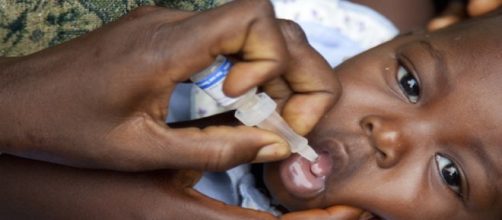The Millennium Development Goals Declaration signed in 2000 by most countries and international actors had a 15 years provision and due to be renewed next September in New York. The transition from Millenium to Sustainable Development Goals is itself an expression of the evolution, which is occurring. In terms of poverty alleviation, and even if much remains to be done, the MDGs have been highly successful and the transition to sustainability is best described by UN General Secretary Ban Ki Moon: “now we need to finish the job”.
To mark the International Development Conference in Septembre, actors all around the world have launched a series of campaigns to promote development, sustainability and calling for action.
Various hashtags, such as #globalgoals or #action2015, have appeared on the internet indicating a global involvement in development. With the apparition of countless charities and NGOs involved in so many projects around the world, it is becoming easier to asses the difference of efficiency between State aid sponsored programs and those of grassroots charities.
State funded development and aid programs have been largely criticised in the past due to occurring issues of funds diversion, waste and corruption. Added to that the fact that large organisations often have to bear consequent running costs, the efficiency of each dollar given is terribly reduced.
In the spotlight this month, the international organisation Humanitarian Relief Alfityanu UK is leading a new movement of grassroots charity work.
Originated from Senegal only few years ago, Alfityanu was created by a handful of citizens from the remote village of Kaolack. The goal was to help the most disadvantaged populations of the area, one person at the time. Thanks to modern social and communication networks, within a few years the movement spread across Europe and other parts of the world. It is in 2012 that a UK branch was created with the simple idea that a few people can get together and make a difference on that one particular village. The organisation would literally target single individuals, mostly needy children, with the intention to end poverty, one child at the time. Between the various branches of UK, France, Luxembourg and Germany, the organisation now fully supports the feeding and educational needs of over 10 children funded entirely by a handful of EU citizen.
Each child’s progress out of poverty is monitored through direct relationship building between donors and children. Also as it might look insignificant in terms of numbers, the minimal amount of funding which such operation required is amazing in comparaison to what is being achieved. The cost of the sponsorship of the same 10 children by states aid funded organisations would normally be much bigger.
Leading the way in wiser investment and the promotion of this form of “low cost” development, Luxembourg was the first country in Europe to adopt the policy to distribute state aid directly to grassroots small charities, encouraging small actors and their efficiency. When comes September, and the great debates about sustainability, it is hoped by many small charities that grassroots charity work will get recognition for its efficiency and more support by states and international actors. Make poverty history is now well within reach with the adoption of the right policies, but it remains to be seen if the voice of small charities will make it through the conference.

